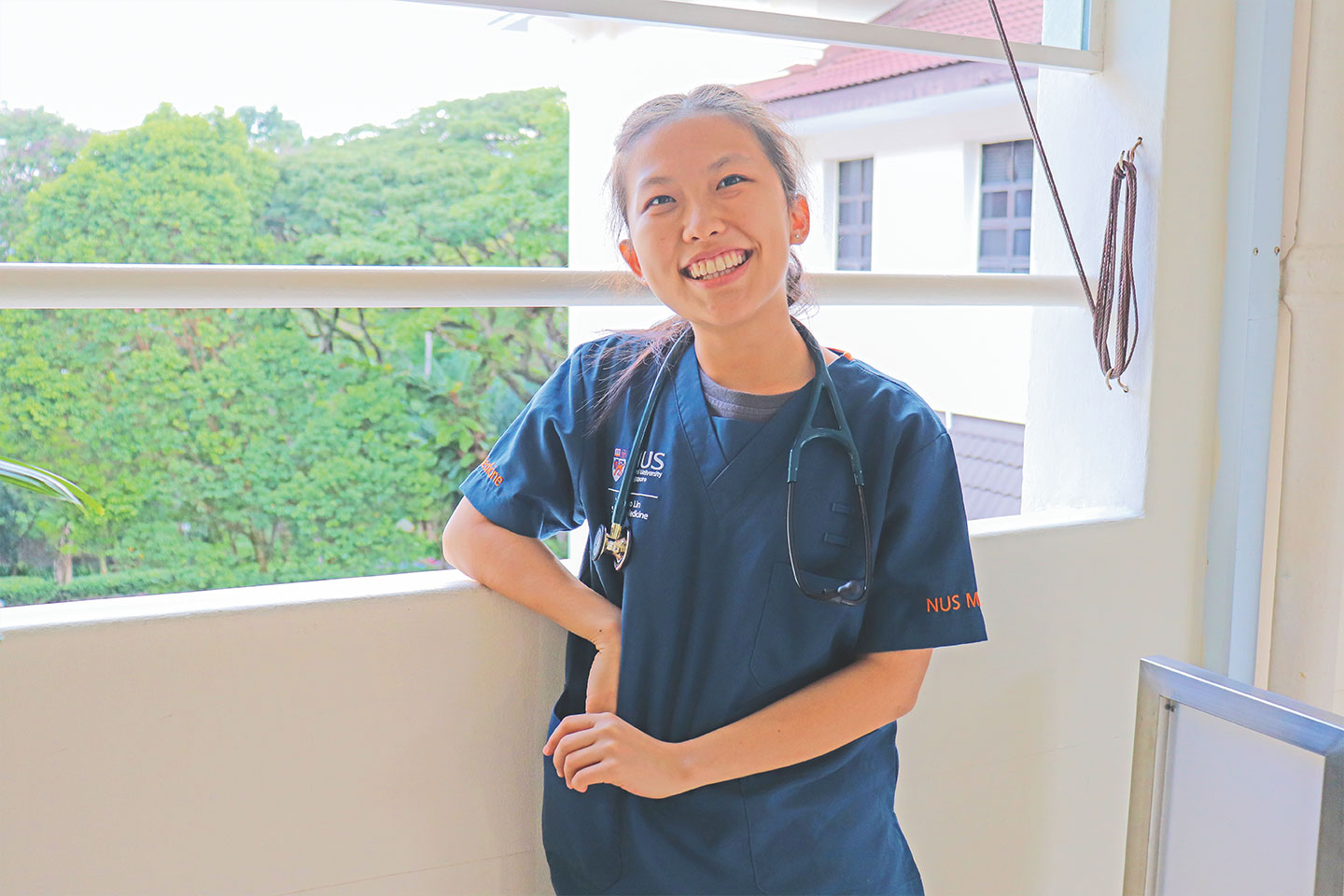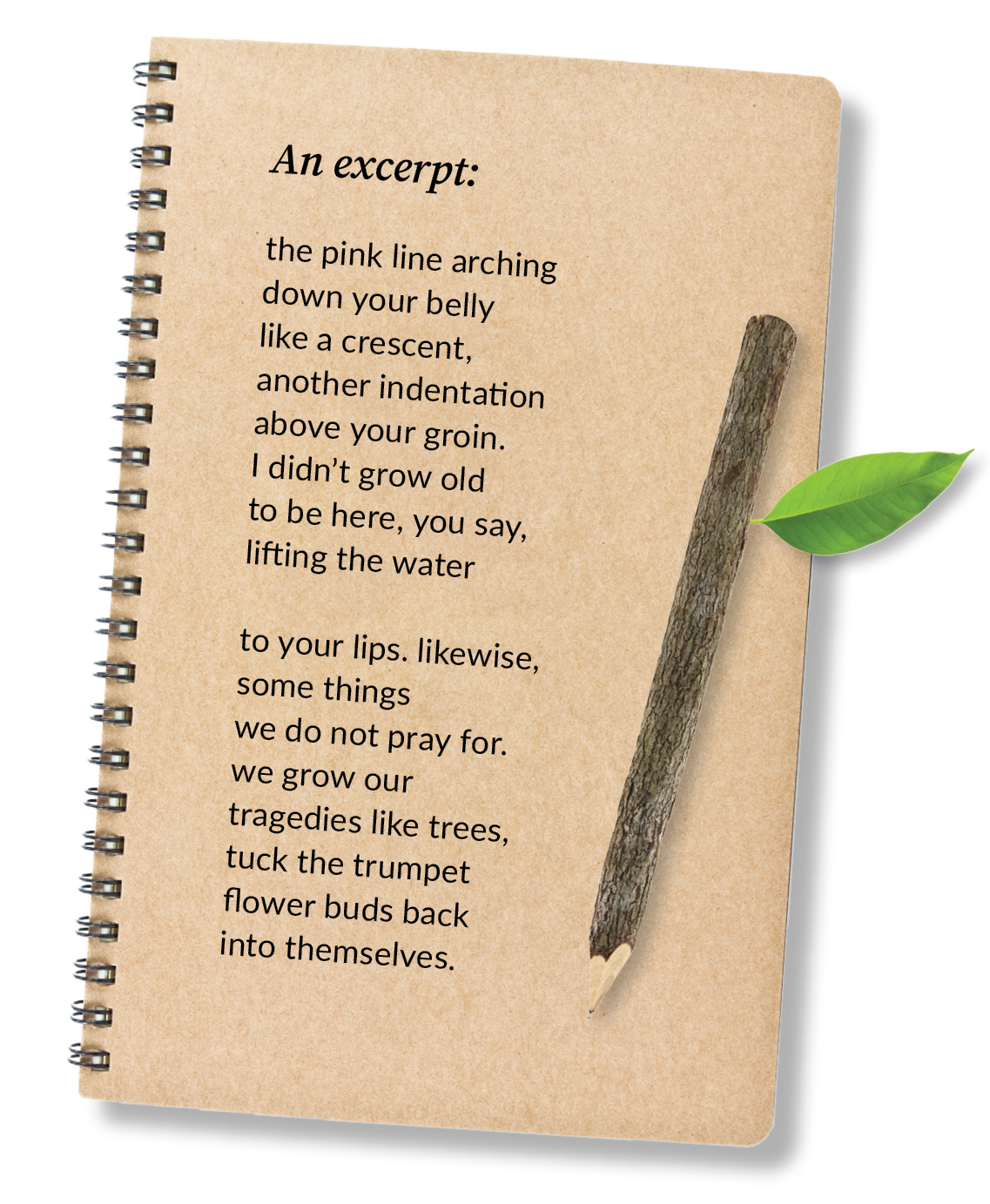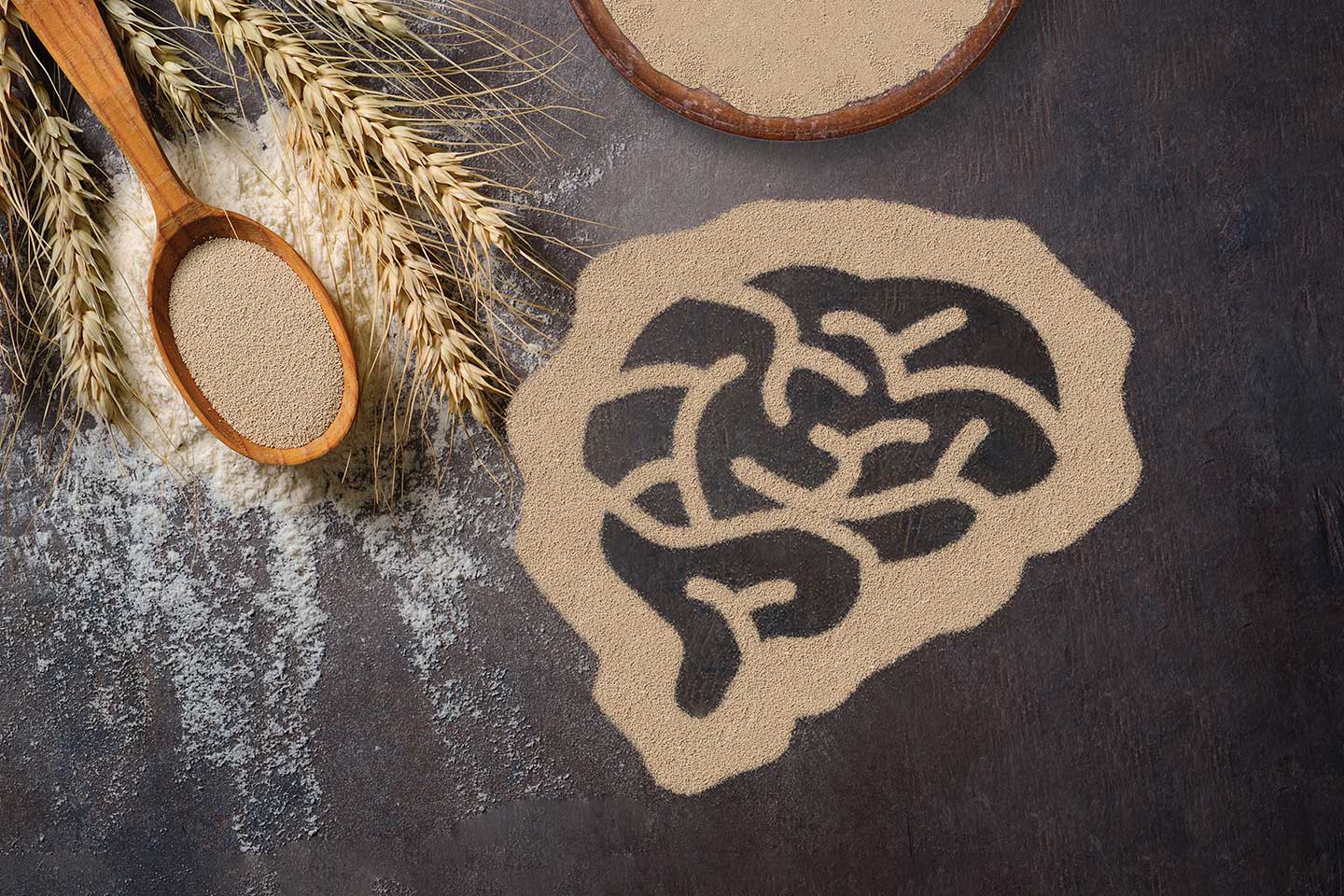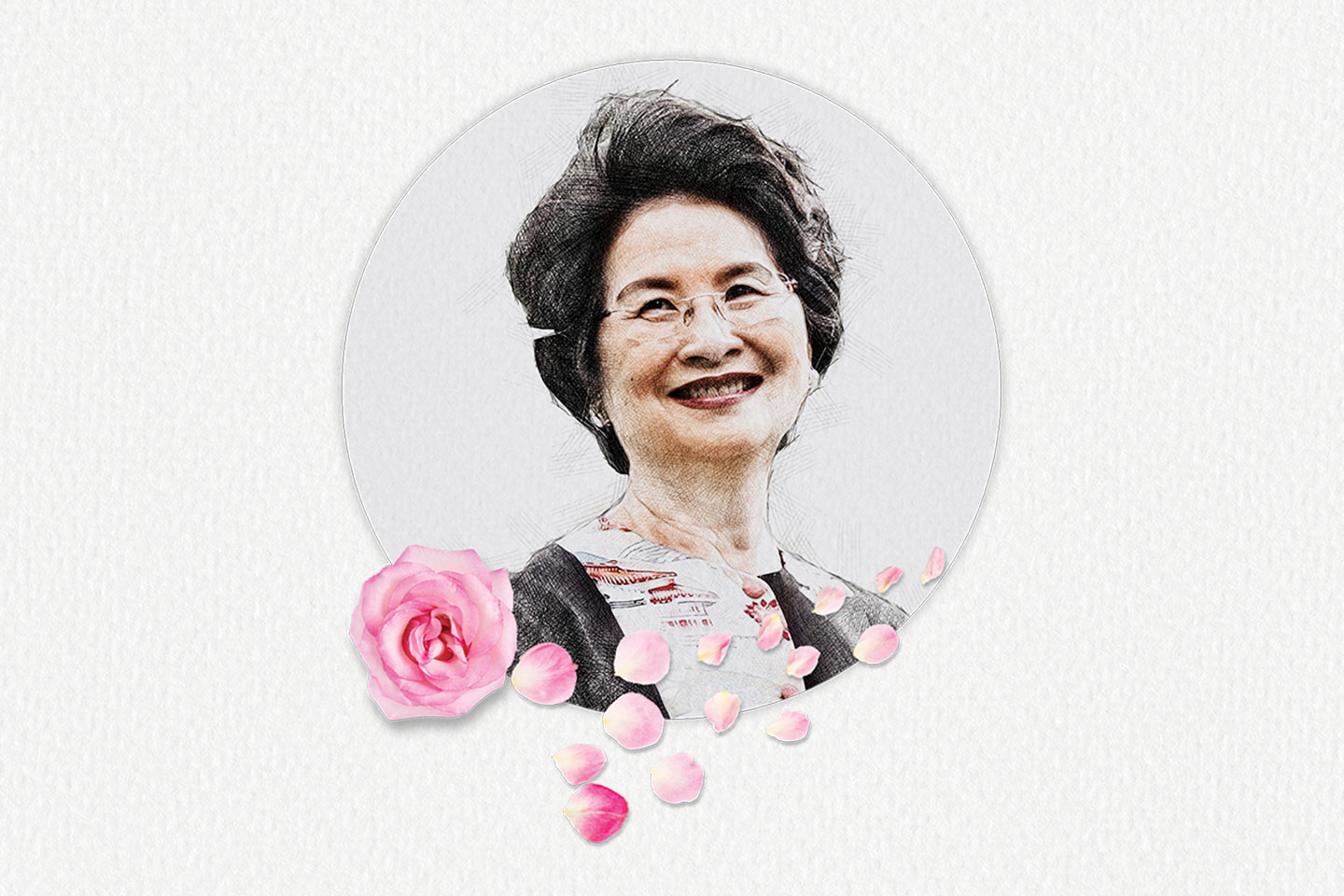
Issue 42 / May 2022
In Vivo
NUS Medicine Student Wins International Medical Journal Poetry Competition

A fourth-year student from NUS Medicine has won the prestigious Prize in Poetry awarded by Annals of Internal Medicine, one of the most widely cited medical journals in the world. The prize is awarded to the best poem published in Annals each year.
“A Pink Crease” was inspired by a patient Ms Ng met during her third year of medical training, during a General Surgery posting to a hospital. The patient was an elderly gentleman in his seventies who had peritoneal metastasis that had spread from end-stage colorectal cancer. The poem details her interactions with the patient, from his taciturn indifference and attempts to evade her gentle probing, to when he finally speaks and shows her his surgical scars.
Interspersed with fragments of Ms Ng’s conversation with the elderly man, “A Pink Crease” presents a tender and authentic image of the relationship between physician and patient. The elderly gentleman is addressed as “uncle” by the speaker, who reaches out into his past with questions of childhood and circuitry. “Uncle” is at once foreign yet familiar—a Singaporean colloquialism for any older gentleman but also one that carries personal affection. The patient, at first a stranger, is initially reticent and stoic. However, when he reveals his surgical scars, they paradoxically serve as markings of closed incisions, leading him to open himself up to the speaker.
The encounter reveals the elderly patient’s scars run deeper than the corporeal—the disease that plagues him carries with it a world-weariness and loneliness that burdens many patients of his age. Through it all, the physician speaker sits patiently by his bedside, lending a sympathetic ear. As the poem troops to its melancholic end, the speaker reflects poignantly on the way “we grow our tragedies like trees”, with our medical afflictions a natural part of nature.
“Ms Ng’s poem was deemed by the judges to be the overwhelming favourite among all of the poems published in Annals in 2021,” said Michael LaCombe, MD, associate editor of Annals of Internal Medicine and editor of the poetry section of the journal. “Considering the impressive volume of poetry submissions we receive each year, just being selected to be published is an honour. To stand out among the elite that make publication is a triumph.”
Ms Ng started writing when she was in secondary school. She was a closet writer, she said, and never took formal literature classes in school.
While she enjoyed the sciences, she was deeply moved by the beauty of the English language and its lyrical charm. It took a while before she gained the courage to share her writing in public.
As a student at Hwa Chong Institution, she was selected for the Ministry of Education’s Creative Arts Programme, a week-long intensive writing seminar for budding writers. She later joined the Creative Arts Mentorship Programme where she was mentored by Mr Desmond Kon, a local writer and publisher. Since then, Ms Ng’s poetry has appeared in an array of literary journals and anthologies both locally and abroad, including Cordite Poetry, Lammergeier, and Cha: An Asian Literary Journal. Prior to this award, she was the youngest recipient of the Top Award for the National Poetry Festival. Her work has received guidance from local literary figures, including Cyril Wong, Alvin Pang, and Theophilus Kwek.
“I love poetry for its brevity—in trying to get the best words in the best order, taking after the English poet, Samuel Taylor Coleridge. I learn so much about how concise and compact, yet how generous and precise language can be.”
“I also love writing because it allows me to reflect on myself and my experiences,” she remarked. “So often we are so overwhelmed—by the deluge of medical information, by expectations from doctors and sometimes patients and their families, that there is so little time to process the emotions and conflicts associated with sickness and suffering, which is such an integral yet often neglected part of medicine,” she added.
Currently, Ms Ng has written a full-length poetry manuscript, which she hopes to eventually publish with a printing press. “In this collection, I explore the themes of love, loss and letting go,” she shared. “Very typical motifs I know, but I hope to lend a personal narrative to these, from the lens of a young woman growing up in Singapore, and from my interactions with the patients I meet in the wards.”
“I am still very much a baby writer, as I am a baby adult,” she admitted. “In many ways, I still very much feel new and blue and fresh. But at the same time, I realise I need to start thinking about how else I can impact others with my words, what more I hope to communicate to the world through my work. I hope to write with curiosity and candour—to go further, deeper, be unflinching. I also want to give credence to how astonishing our world can be despite the brokenness we live with—to begin from beauty and begin with beauty.”
Ms Ng will be donating the full sum of the USD$500 prize money to the NUH Children’s Fund, which provides financial assistance to needy patients of the Khoo Teck Puat – National University Children’s Medical Institute (KTP-NUCMI) at the National University Hospital.
“I don’t think this gift of writing is mine alone,” she says. “I have been so blessed by the patients and mentors I have met, and I want to pass the goodwill on. Whatever joy we receive is multiplied by sharing.”
Click here to read the winning poem on the journal’s website.





